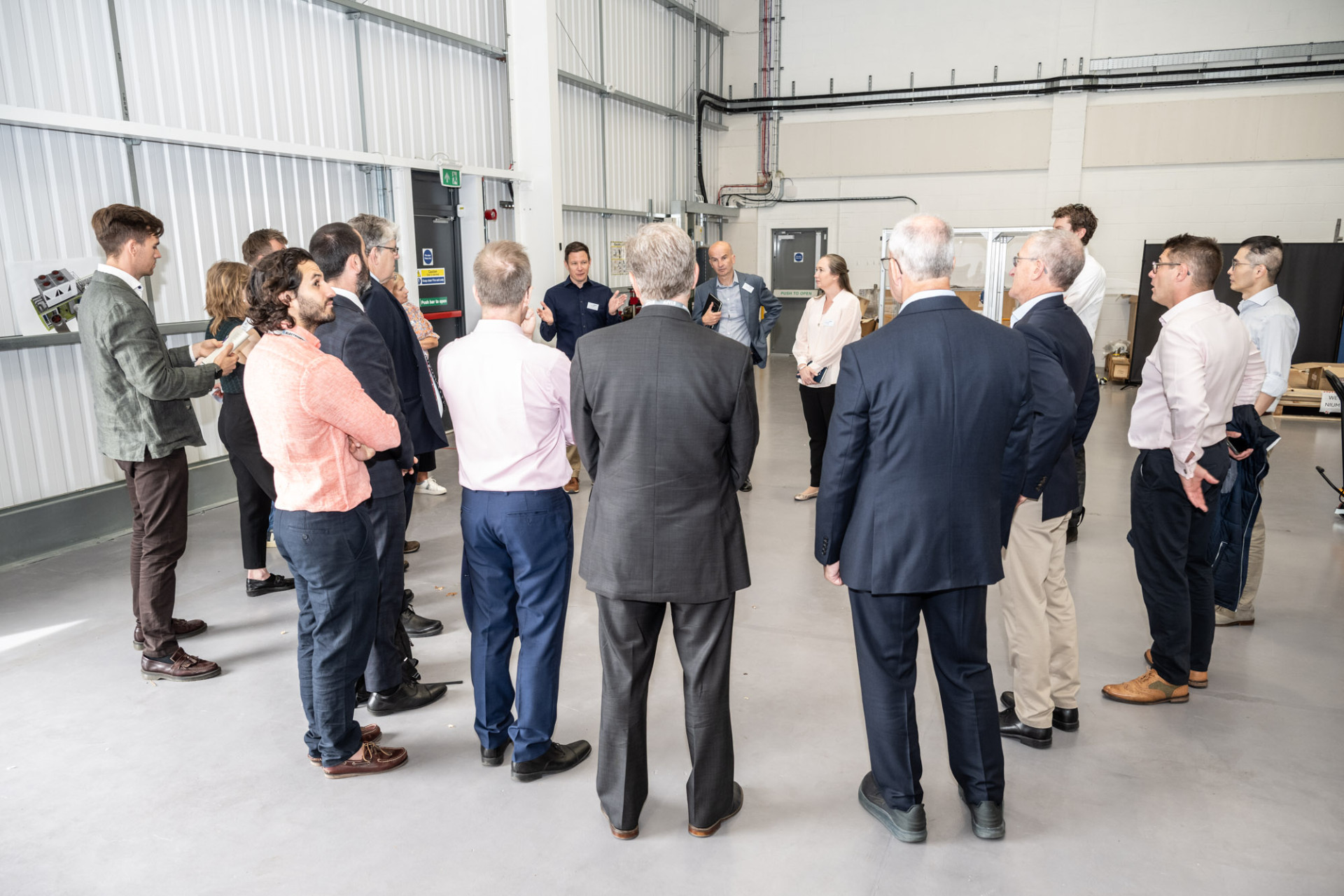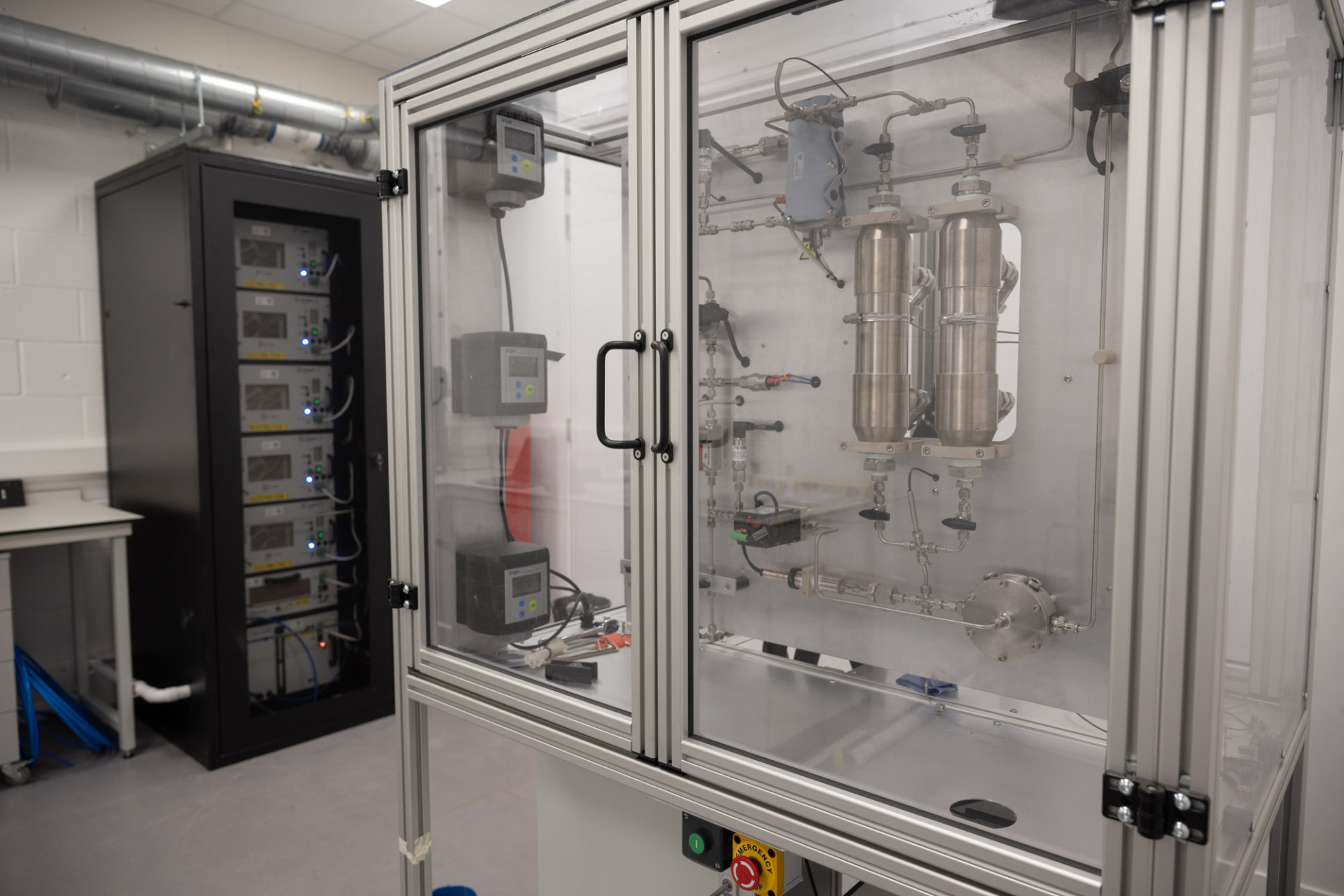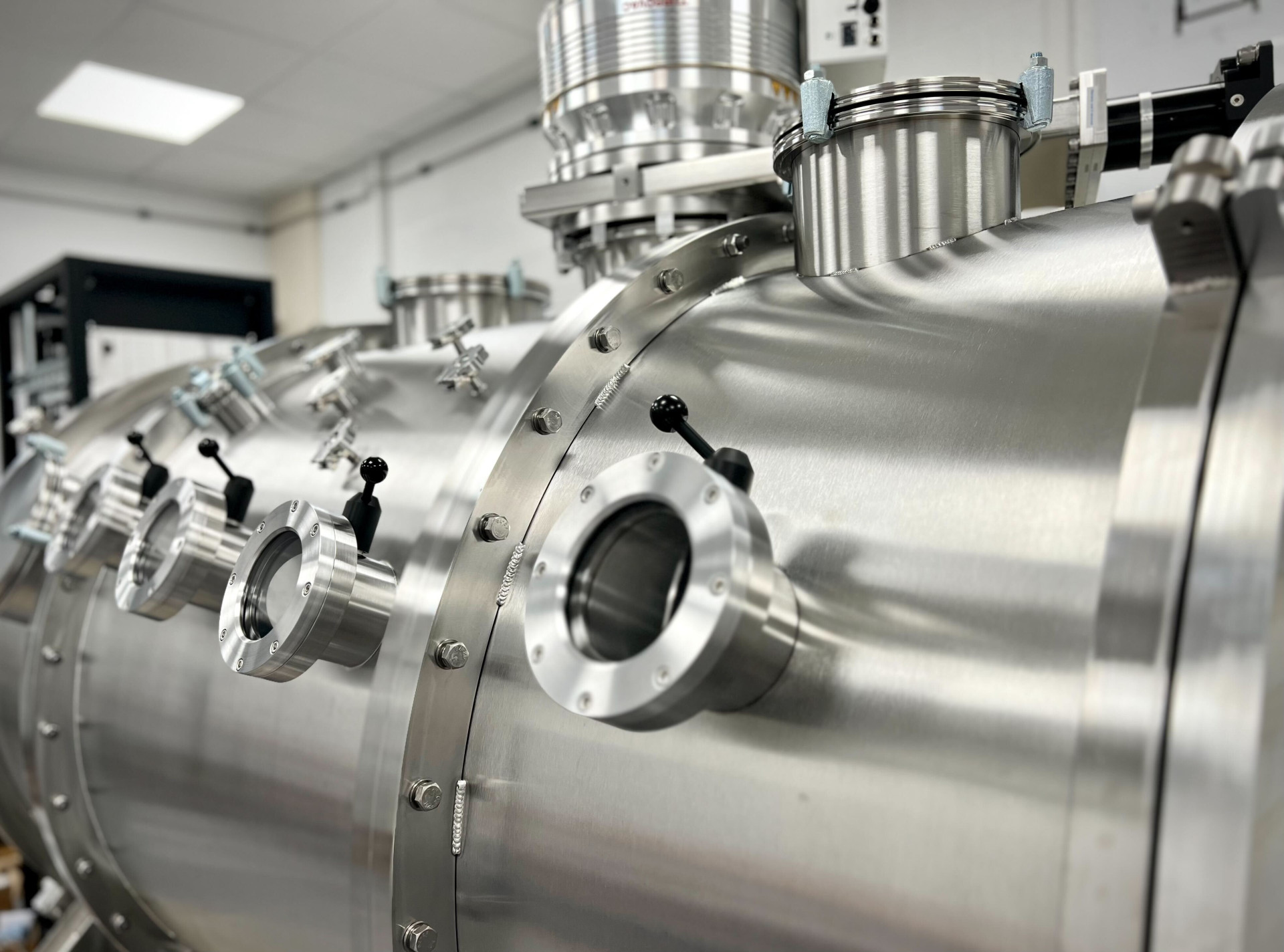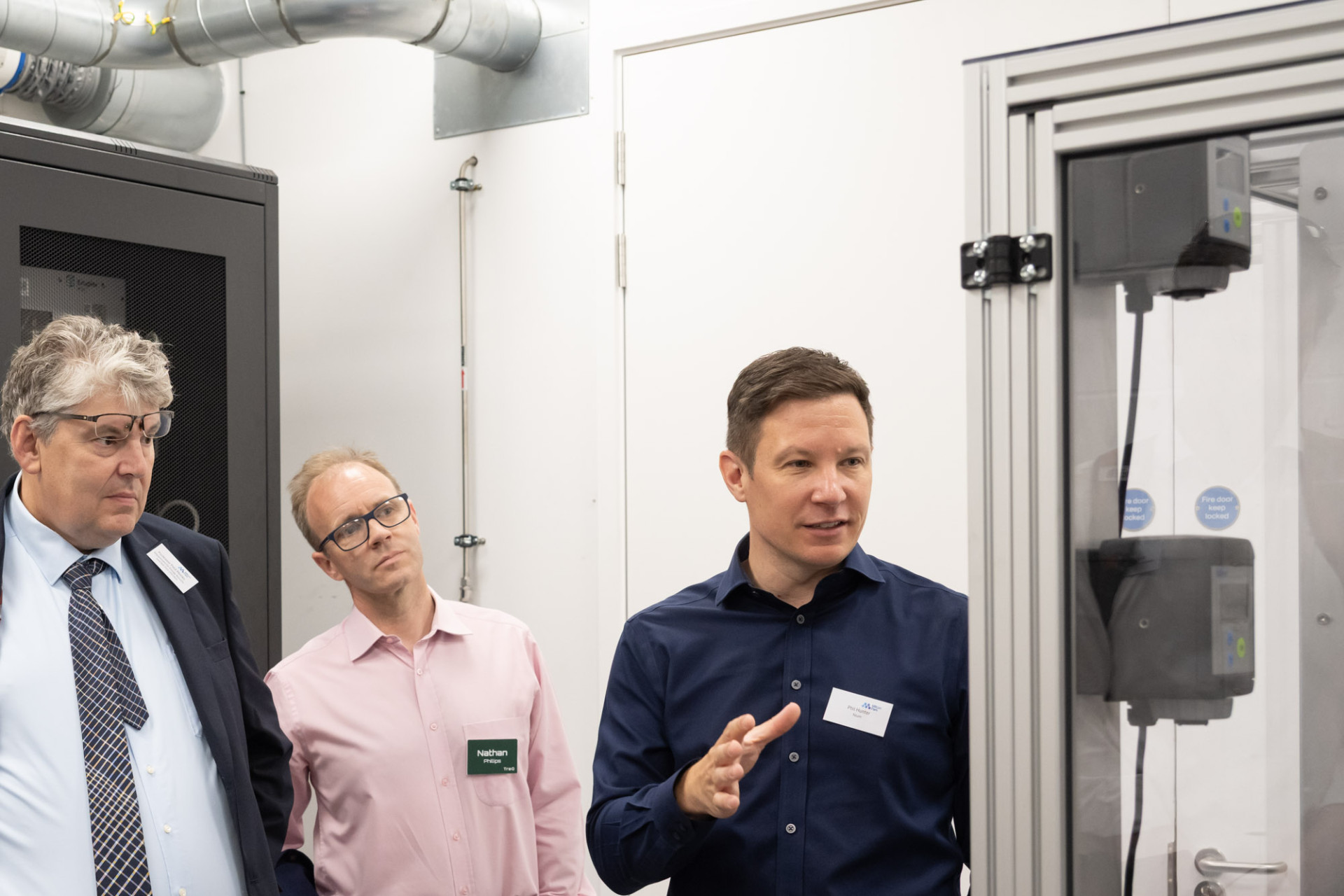Nium was delighted to host Professor Paul Monks, Chief Scientific Adviser for the Department for Energy Security and Net Zero (DESNZ), at our headquarters and ‘Nanosphere’ R&D facility in Milton Park this month. The visit was part of a wider tour for Professor Monks to see firsthand the pioneering science and technology innovation across the UK that is critical to delivering the nation’s Net Zero ambitions.
Ammonia: The High Cost of a Vital Chemical
Ammonia is one of the world's most vital chemical commodities. It underpins global food security, with ammonia-based fertilisers supporting approximately 50% of all food production. It is also emerging as a key enabler of the green hydrogen economy, acting as a clean, transportable fuel for shipping and a stable carrier for energy storage.
However, for over a century, its production has been dominated by the carbon-intensive Haber-Bosch process, which alone accounts for around 1.3% of global CO₂ emissions and 2% of global energy consumption. Creating a new, clean and efficient way to produce ammonia is therefore an urgent global priority.

Nium's Breakthrough Technology
At the heart of Nium’s solution is a breakthrough nanocatalyst platform that fundamentally redesigns the chemistry of ammonia synthesis. Using a proprietary and patented manufacturing technique, we create ultra-stable, high-performance catalysts with atomic-level precision.
This unique approach enables us to produce ammonia at significantly lower temperatures and pressures than the Haber-Bosch process, achieving dramatic energy savings and allowing for seamless, cost-effective integration with intermittent renewable energy sources.
Crucially, this efficiency at a smaller scale unlocks the potential for decentralised production. This enhances national energy security by enabling long-duration storage for renewable power and bolsters food security by creating resilient, local fertiliser supply chains that are less exposed to international market volatility.
It was fascinating to see innovation happening at scale at Milton Park. This is clearly one of the places to be in the UK if you want to contribute to clean growth. It was a fitting reminder that, as a country, we shouldn’t shy away from promoting ourselves as global leaders and a science and innovation superpower.
Professor Paul Monks, Chief Scientific Adviser for the Department for Energy Security and Net Zero (DESNZ)

Technology in Action, Backed by UK Innovation
Professor Monks saw this vision in action during a tour of our headquarters. The team showcased the journey of the technology, from our early MK1 R&D reactors to the validated TRL 5 ‘MK2’ prototype reactor system, which has successfully completed a 1,000-hour continuous operation test.
The delegation were also able to see early previews of our new, first-of-a kind catalyst production unit and the end-to-end ammonia synthesis module currently being assembled for our international ‘Project Koala’. This rapid progress is underpinned by strong support from the UK’s innovation ecosystem, including a £1m grant from Innovate UK to build the scaled-up catalyst production system and further UK government backing for Project Koala through the UK-Australia Renewable Hydrogen Innovation Partnerships Programme.

Collaboration between government and innovators is paramount to accelerating the transition to a net-zero future. We look forward to continuing the conversation and working together to build a more sustainable tomorrow.
Phil Hunter, Nium CEO
Nium extends its sincere thanks to the team at Milton Park for organising this important visit and for their continued work in fostering a world-class environment for science and technology innovation.
Read more about Milton Park and the visit here - https://www.miltonpark.co.uk/b... and watch the full video below.












